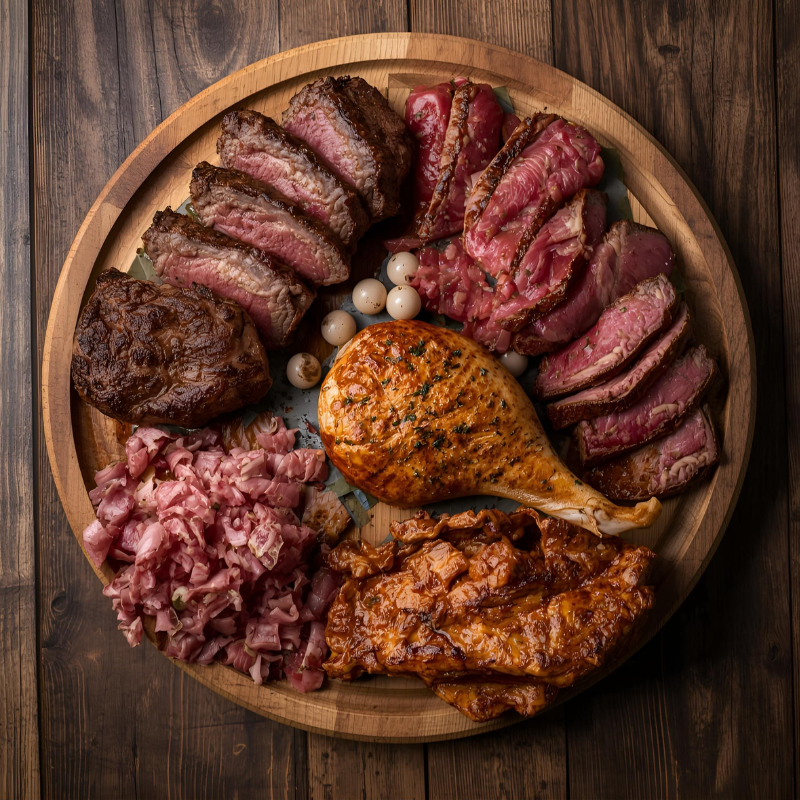What Is the Carnivore Diet?
The carnivore diet is a zero-carb, animal-based eating plan focused on meat, fish, eggs, and limited animal products. It eliminates all plant foods — no fruits, vegetables, grains, legumes, or sugars — and prioritizes nutrient-dense animal proteins and fats.
At first glance, it may sound extreme, but for many people struggling with inflammation, autoimmune issues, or poor metabolic health, the simplicity of eating only animal products can be transformative.
Key Benefits of the Carnivore Diet
🧠 1. Improved Mental Clarity and Focus
Many followers report sharper focus and stable energy throughout the day. This comes from stable blood sugar levels due to zero carbohydrate spikes and the brain’s efficient use of ketones for fuel.
👉 Research: Harvard Health — Ketogenic and Low-Carb Diets
🔥 2. Reduced Inflammation
By removing plant antinutrients like lectins and oxalates — found in grains and some vegetables — the body experiences lower systemic inflammation. This can benefit those with arthritis, autoimmune conditions, or chronic pain.
👉 Source: PubMed Study on Carnivore Diet and Inflammation
💪 3. Fat Loss and Muscle Retention
High-protein, high-fat meals promote satiety and naturally reduce calorie intake without counting macros. Combined with strength training, the carnivore diet can preserve lean muscle while burning fat.
👉 Learn more: NIH — Protein and Weight Management
🩸 4. Stable Blood Sugar and Hormone Balance
With zero refined carbohydrates, insulin levels remain steady, helping reduce cravings, fatigue, and metabolic syndrome risk factors.
👉 Resource: Diabetes UK — Low-Carb Diet Evidence
🧬 5. Simplicity and Elimination of Food Intolerance
No tracking, no measuring — just eat animal foods to fullness. This “elimination” aspect can make it easy to identify hidden food sensitivities that cause bloating, fatigue, or skin issues.
Potential Drawbacks to Consider
-
Electrolyte Imbalance: Low carbs mean less water retention, so sodium, potassium, and magnesium intake must be monitored.
-
Fiber Absence: Some may experience digestive adjustments when first starting.
-
Limited Variety: Nutritional gaps can occur if you don’t rotate between different animal sources (e.g., organ meats, seafood, eggs).
If you’re considering going carnivore, it’s best to consult with a healthcare professional or nutritionist, especially if you have existing medical conditions.
Carnivore Diet Shopping List (Beginner-Friendly)
Proteins
-
Ribeye steak
-
Ground beef (80/20)
-
Chicken thighs or drumsticks
-
Pork belly or bacon (sugar-free)
-
Eggs (pasture-raised if possible)
-
Salmon, sardines, or mackerel
-
Shrimp or scallops
-
Beef liver, heart, or kidneys (optional but nutrient-dense)
Fats
-
Beef tallow
-
Butter or ghee
-
Duck fat
-
Animal drippings (use for cooking)
Beverages
-
Water (add electrolytes if needed)
-
Bone broth
-
Black coffee (optional — purists omit it)
Seasonings
-
Salt (Redmond Real Salt or Himalayan pink salt)
-
Pepper (optional for less strict versions)
Sample 3-Day Carnivore Meal Plan
Day 1
Breakfast: 3 whole eggs + 3 egg yolks cooked in butter
Lunch: Ribeye steak cooked in tallow
Dinner: Ground beef patties with melted butter
Snack: Sardines or beef jerky
Day 2
Breakfast: Scrambled eggs with bacon
Lunch: Chicken thighs with skin, cooked in duck fat
Dinner: Pork belly slices and liver (small portion)
Snack: Bone broth or hard-boiled eggs
Day 3
Breakfast: Coffee with heavy cream + 2 poached eggs
Lunch: Salmon fillet with butter
Dinner: New York strip steak with beef drippings
Snack: Shrimp sautéed in ghee
Tips for Success
-
Hydrate aggressively: Aim for 3–4L of water daily with added electrolytes.
-
Transition gradually: Reduce carbs over a week before going full carnivore to minimize fatigue.
-
Track how you feel: Note changes in energy, digestion, and recovery — many people feel significant benefits within 1–2 weeks.
Final Thoughts
The Carnivore Diet challenges conventional nutrition wisdom, but for those seeking metabolic reset, inflammation relief, or simplicity, it can be a powerful short- or long-term strategy. Start slowly, prioritize nutrient-dense meats, and listen to your body.
Read more

Discover how alcohol affects muscle growth, fat loss, recovery, and overall fitness. Learn why moderation matters and how to balance social drinking with your fitness goals.

Learn how sleep impacts testosterone production, muscle growth, energy, and mood. Discover how many hours men really need and science-backed tips to boost hormonal recovery.

